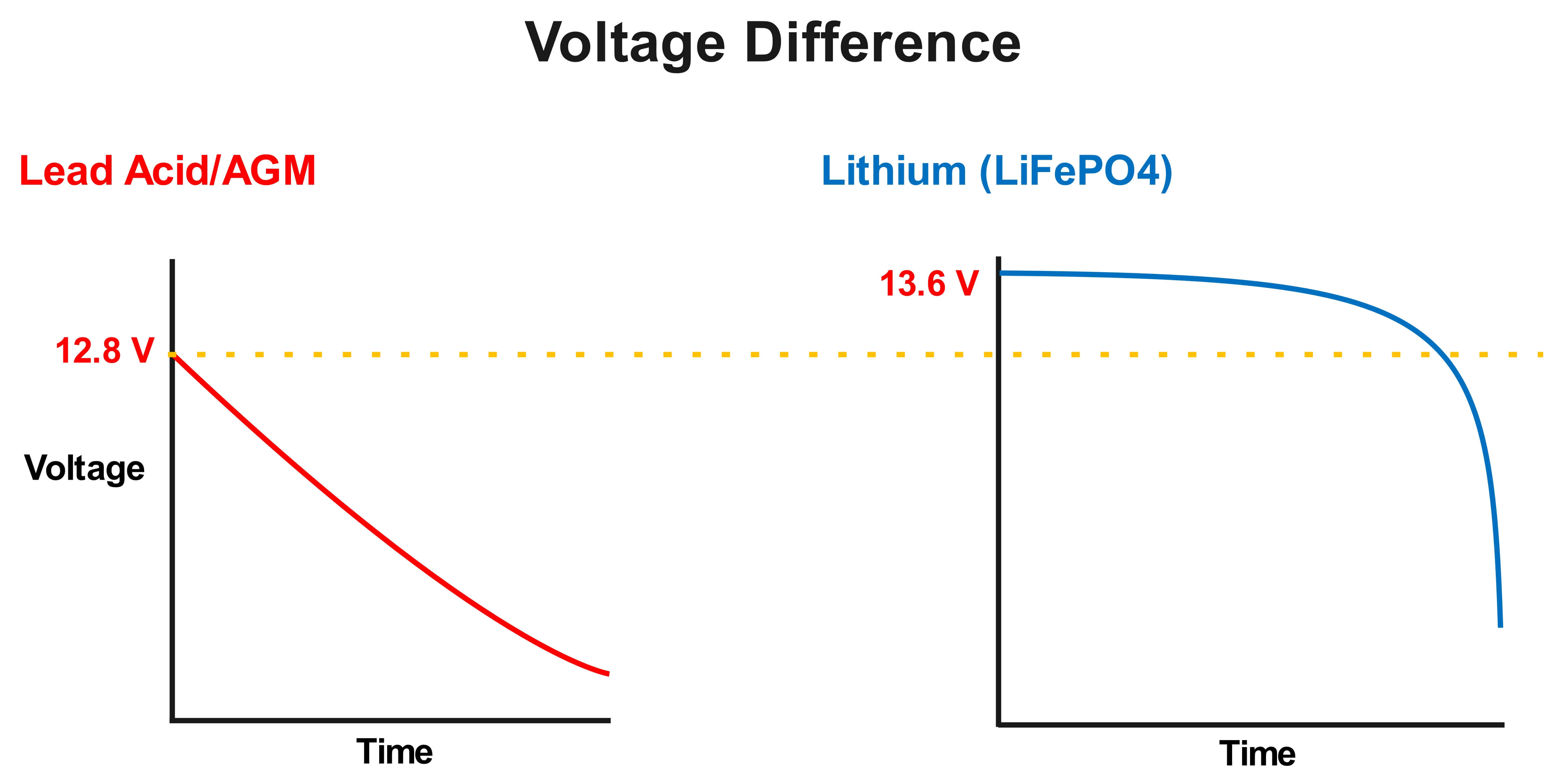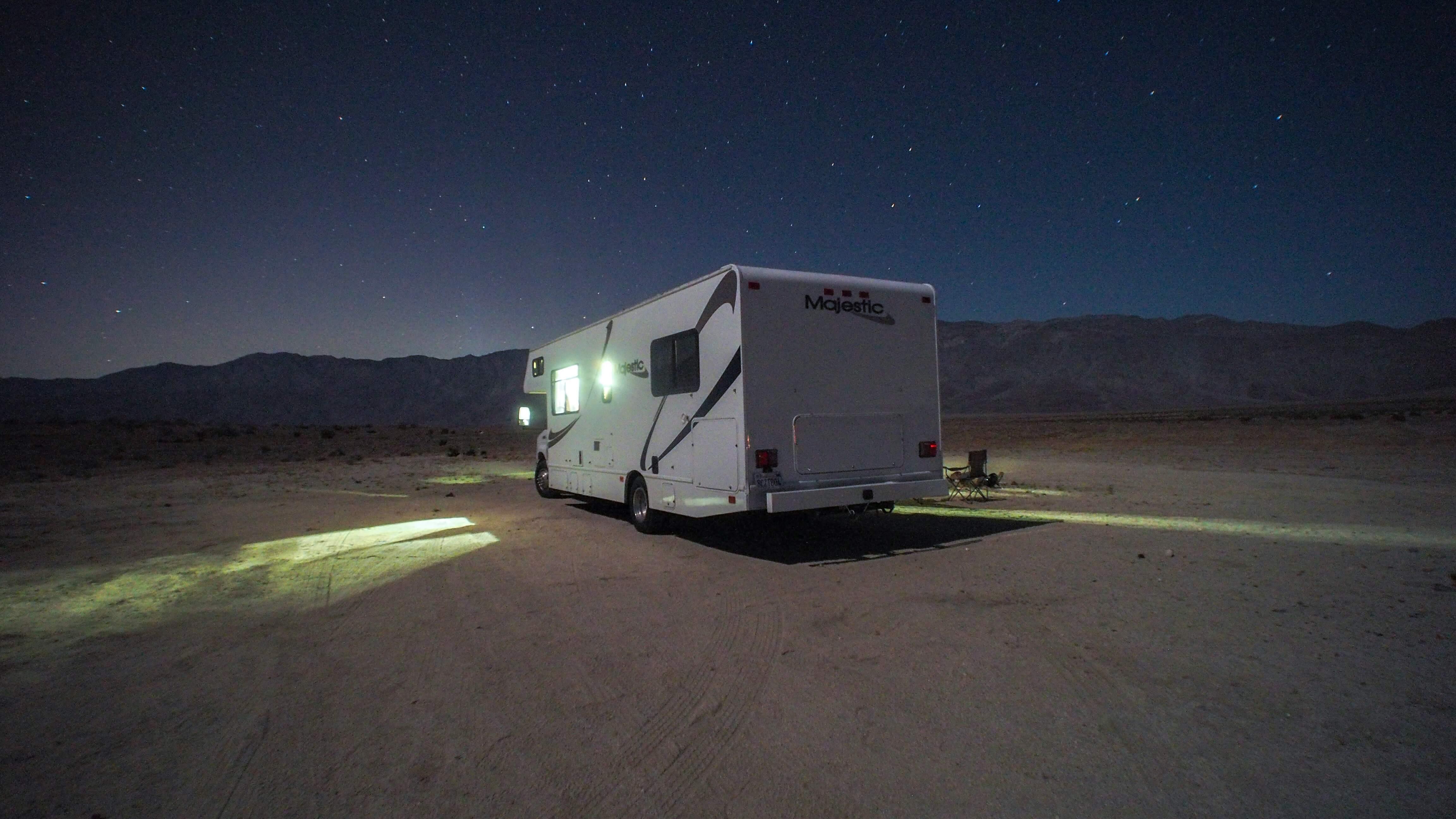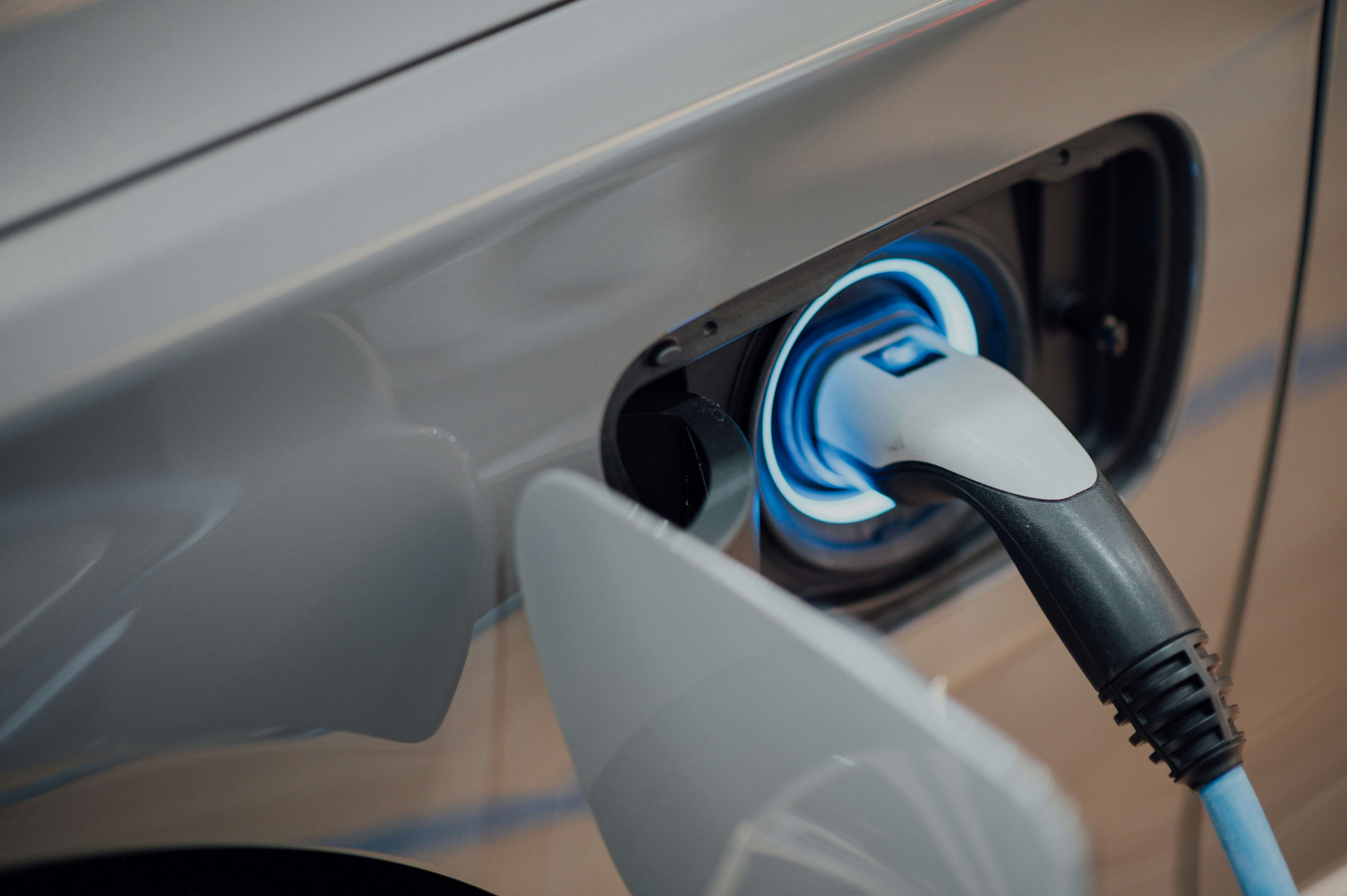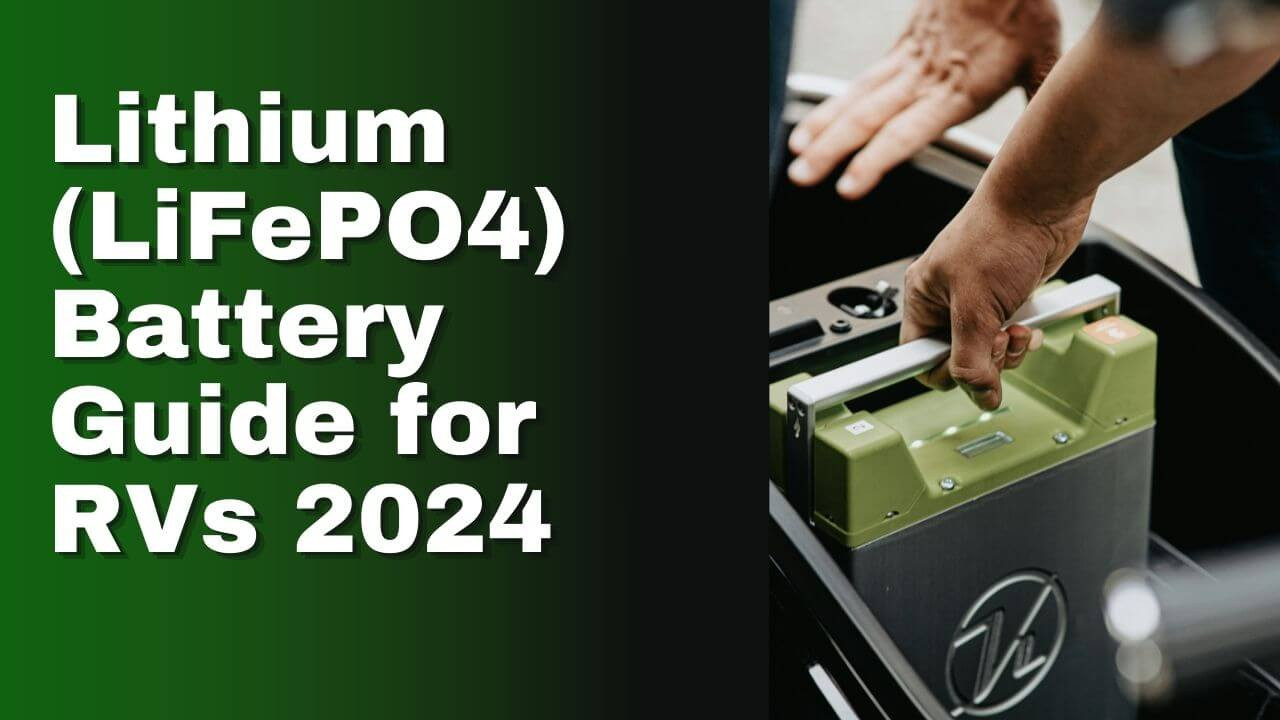Lithium RV Battery Guide: Benefits, Installation, and Maintenance
Gone are the days when lithium batteries were primarily used in mobile phones and watches. Today, they have become the go-to option for electric vehicles such as cars and RVs.
Lithium RV batteries are highly valued for their unmatched efficiency, lightweight design, and long lifespan. RV owners seek to maximize their off-grid experiences without the hassle of constant recharges or dealing with heavy, aging batteries.
These batteries give you steady power, fast charging, and significantly greater reliability than traditional lead-acid and AGM batteries. Let's discuss it in detail:
Benefits of lithium battery for RV
Lithium batteries offer various features, making them stand out among lead-acid or AGM batteries. Here are some of them.
1. Longevity
The lithium battery lasts much longer than any traditional battery. It offers 3,000 to 5,000 charge cycles or around 10 to 15 years of use. Longevity alone makes lithium a long-term investment, saving the need for replacements within a few years.
2. Efficiency
Lithium batteries efficiently deliver energy and charge, allowing up to 95% Depth of Discharge (DoD) with minimal voltage drops. They can quickly charge, especially from solar power systems. It helps RVers maximize off-grid energy use.
3. Weight
They come in at 50-60% lighter than the AGM batteries, which helps cut down on the overall weight of your RV. That makes LiFePO4 burn much less fuel and creates less wear on the vehicle.
4. Energy Density
It has a higher energy density and more energy within a small volume. This is one great advantage for RVs, which have limited interior space but require supporting a considerably powerful energy source.
5. Maintenance
These LiFePO4 batteries have an integrated Battery Management System, which protects the battery from deep discharging, short circuits, or overcharging. It makes keeping track of AGM or lead-acid batteries practically less important.
Lithium vs. AGM (absorbent glass mat) batteries for RVs

Between lithium (LiFePO4) and AGM (Absorbent Glass Mat) batteries for RVS, lithium works better, as it offers good performance and life. Lithium batteries can last for 10 to 15 years and can be charged 3000 to 5000 times, while AGM batteries usually last 3 to 5 years and can be charged 400 to 1200 times. They are much lighter, which lowers the total weight of your RV and helps save fuel.
In addition, while lithium batteries cost more at first, their long-term benefits are much better than AGM batteries. Lithium batteries require no maintenance, charge quickly, and work efficiently, especially on solar systems. In comparison, AGM batteries, being cheaper at first, tend to wear out faster, need careful charging, and make the vehicle heavier.
One asks for durability, and the other for low pricing, but what to choose? Here is the detailed comparison table to help you make wise decisions.
|
Feature |
Lithium (LiFePO4) |
AGM (Absorbent Glass Mat) |
|
Weight |
50-60% lighter |
Heavier |
|
Cost |
$700-$1500 (100Ah) |
$200-$400 (100Ah) |
|
Maintenance |
Maintenance-free |
Minimal, careful charging |
|
Charging Speed |
Faster |
Slower |
|
Cold Weather |
Requires heaters below 32°F |
Works without heaters |
Lithium RV battery performance in different conditions
Lithium RV batteries, specifically LiFePO4, are known for superior performance under various conditions compared to traditional lead-acid batteries.

Hot Weather
Lithium batteries perform well in high-temperature, around 140°F (60°C). However, extreme heat will deteriorate the battery's health over time. The built-in Battery Management System (BMS) helps manage temperature fluctuations by protecting the battery from overheating. Lithium batteries are more efficient than lead-acid, delivering consistent energy even when hot.
Cold Weather
Lithium batteries have a more difficult time in cold than hot temperatures and may stop charging below freezing (32°F or 0°C) without built-in heaters. Low temperatures reduce electrochemical actions and discharge rates. Some RV lithiums, such as the Power Queen and Battle Born, can have heaters built right into them.
Off-Grid Situations
More people choose lithium batteries for off-grid living, as they have high energy efficiency. They charge up faster, hold their charge for extended periods, and have more usable capacity. Lithium batteries can use most of their capacity without damage, which makes them great for solar systems. With inconsistent solar energy, they give consistent power, even in boondocking or long-term off-grid stays.
Different Terrains
Lithium batteries do well on rough ground since they are light and strong. They do not leak out like heavy lead-acid batteries and would not need to be put in any particular position. They even withstand shocks and vibrations, which will increase during jolting or very rough roads.
How to install a lithium RV battery?
Installing a lithium battery in an RV is relatively straightforward but requires attention to safety and compatibility. First, ensure your RV is disconnected from shore power and solar panels before starting. Choose a 12V LiFePO4 battery that fits your RV's existing battery compartment.
To prevent overheating and underheating of the battery, check if your lithium battery has a Battery Management System (BMS) or needs installation. Your RV wiring and inverter should be upgraded enough to support lithium batteries. Once installed, adjust your charger settings to match the lithium battery requirements and test the system for proper function.
Note: Planning to upgrade your RV battery to a lithium-ion model? Learn essential tips for a smooth installation, similar to how you'd change a car battery.
Cost of an RV lithium battery
The lithium battery cost for your RV differs based on factors like size, brand, and capacity. Usually, a good quality 100Ah LiFePO4 battery can range from $500 to $1,000.
Some factors also affect the cost:
- Size and Capacity: Large batteries with higher amp-hour (Ah) ratings cost more. This means a 200Ah battery will naturally be pricier than a 100Ah one.
- Brand: Premium brands like Battle Born are expensive because they have a reputation for quality and reliability. Brands often add safety and extend the lifecycle by including internal built-in Battery Management Systems (BMS) features.
- Features: Batteries with unique features like built-in Bluetooth monitoring, auto-heating for low temperatures, etc. will also include extra costs.
A high-quality lithium battery is an investment for long-term benefits such as longer life, lightweight features, and faster charging. This will be an expensive upgrade compared to most RV owners' lead-acid batteries, but it's worth it in the long run.
How to charge an RV LiFePO4 battery?

Most people don't understand the chemistry of the battery. If they're using the wrong battery charger, like a lead-acid charger for charging lithium-ion batteries, it will lose the performance and life of the LiFePO4 battery. Charging an RV LiFePO4 battery involves proper knowledge and specific protocols for safety and efficiency. Let's learn more about it.
Charging methods for RV LiFePO4 battery
- Solar Power: Off-grid charging using solar panels is an efficient way to power LiFePO4 batteries. Solar charge controllers regulate the voltage to prevent overcharging.
- Shore Power: At campsites or parks, shore power can charge LiFePO4 batteries. You'll need a power adapter to convert AC to DC.
- Generators: Portable generators are another option for charging. Some RV parks may restrict the use of noisy generators so that solar-powered alternatives might be preferred.
Safety tips for charging RV LiFePO4 battery
- Avoid overcharging by using a Battery Management System (BMS).
- Always use chargers designed specifically for LiFePO4 batteries.
- Ensure the battery doesn't overheat during charging.
- Maintain proper ventilation to dissipate heat during charging.
- Secure all connections and use appropriate wiring to handle the charging current.
Conclusion
The biggest benefit of Lithium batteries for RV owners is the charging at off-grid experience. Lithium RV batteries provide reliable and efficient power, with longer lifespans, lightweight, and faster charging, excellent for long trips. Unlike AGM batteries, lithium models like LiFePO4 excel in durability and performance, making them a wise long-term investment.
If you consider upgrading from traditional batteries, then Renogy lithium batteries have you. Renogy lithium batteries for RV are known for their quality and reliability, offering excellent support for both on- and off-grid adventures.
FAQs
Can I replace my RV battery with a lithium battery?
Yes, you can replace your RV battery with a lithium battery. Just ensure it's compatible with your existing system and charging setup.
Are lithium batteries worth it for RVs?
Lithium batteries are worth it for their long lifespan, faster charging, lightweight design, and overall efficiency compared to traditional batteries.
What is the best lithium battery for a campervan?
The best lithium battery for a campervan depends on your needs, but brands like Battle Born, Renogy, and LiTime are famous for their durability and performance.











